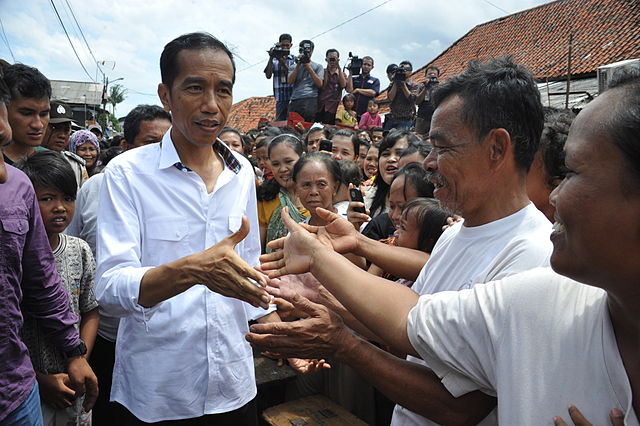Earlier this year, Indonesians elected Joko “Jokowi” Widodo as their new president. The Jakarta governor’s background was unusual in Indonesian federal politics extremely humble:
A former carpenter and furniture exporter who was born in a slum in Central Java Province, he will be the first president in Indonesian history not to emerge from the country’s political elite or the ranks of former army generals.
For Indonesia’s very poor and near-poor, this election choice is already paying dividends — quite literally:
As part of the three-card package comes a pre-activated mobile phone SIM card linked to a saving account at state-owned Bank Mandiri. Using this system, the government said it hopes to transfer 200,000 rupiah ($16.50) a month to 15.5 million poor and homeless families to ease the pain of the fuel subsidy cuts. Beneficiaries will be able to cash in their payments at designated bank branches and post offices. If successful, the new system will become the world’s largest government-funded cash-transfer programme, bigger than Brazil’s Bolsa Familia, a similar scheme that has covered 12 million families since its launch in 2003.
Previously from Arsenal For Democracy — on cash transfer experiments in Brazil and Bolivia: “Social inclusion, anti-poverty policy are great for the economy!”

President Jokowi, then Governor of Jakarta, shakes hands with a crowd in January 2013. (Credit: Provincial Government of Jakarta via Wikimedia)


